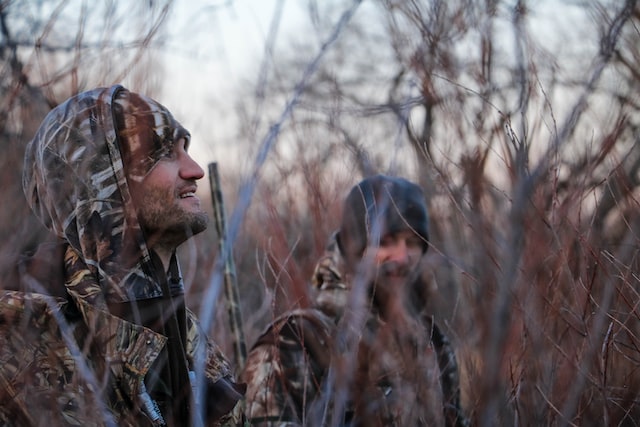
If you are a hunter, there are some common tips that you must follow. These include wearing the appropriate clothing, pointing the muzzle in a safe direction, and learning about the surroundings. In addition, it is essential to use vortex precision matched rings in a riflescope with the proper safety equipment. Having the right hunting boots can make a big difference in the safety of your hunt.
Safety Precautions
While hunting may be one of the most enjoyable activities for many, it’s also essential to follow specific safety measures. The most obvious of these is to watch the weather, especially if you’re hunting on a boat. Unless it’s a must, it’s best to avoid tracking in stormy weather. You can check with your state’s meteorology department to see if it’s safe to go out on the water. If it’s not, it’s best to postpone your hunt.
Before hunting, make sure to check your hunting equipment. Remember that firearms are dangerous, so you should always assume they’re loaded. Also, don’t carry a loaded gun in your hand! It’s a good idea to store your ammunition separately. Finally, always remember to shoot while seated; standing up makes you unsteady and prone to falling.
Another necessary hunting safety precaution is to wear a lifejacket. A life jacket can save your life if you’re in the water. It’s also a good idea to wear orange while hunting. And, while you’re out, make sure you check your gun and your belongings before loading it back in the car. Snakes and other critters can sneak into your bag. It’s also a good idea to take good care of your gun when not in use. This will reduce the chance of it misfiring.
Gear to Bring
When preparing for a hunting trip, you must know what gear to bring. It is always best to have more than one copy of your gear list, especially if you’re hunting in different seasons or species. You can always add or remove layers as needed. Also, don’t forget to pack several pairs of boots, gloves, and a hat.
A map of the area you’re hunting is also a must. A GPS is your best option, but even a physical map will help you find your way around. You’ll also want to bring protein bars or fruit snacks. Avoid meat jerky, which might attract predators and scare off your prey.
Another essential gear for your hunting trip is a small first aid kit. These kits can contain band-aids, hand sanitizer, paracord, and anti-itch cream.
Choosing the Right Hunting Boots
Choosing the right hunting boots for your hunting style is essential to success. They must be waterproof and insulated to provide warmth during winter and breathable to keep you cool in the summer. It would help if you also chose a boot with a specialized sole that lets you feel the ground and prevent twigs from slicing your foot. Several brands sell top-quality hunting boots. These include Crispi, Hanwag, and Kenetrek.
The terrain you’ll be hunting on will determine the type of boots you need. Big game hunters, for example, will need boots with high ankle support and a stiff sole. A rubber boot with an extra rubber layer will provide extra traction and a good grip in wet terrain. You should also pay attention to the insulation level of the boots, which is usually listed as grams per square meter.
If you’re a hunter who prefers comfort over many features, you can opt for a high-quality mountain boot. The Kenetrek Mountain Extreme is a great example. It features a 7mm polyurethane midsole and a proprietary K-Talon outsole. It also features a no-seam tongue and a waterproof membrane.
Preparing for a Successful Hunt
Preparing with the proper hunting equipment is one of the first steps to a successful hunt. This includes getting familiar with your gun or bow and knowing what types of shots you will need at various yardages to hit your target. It is also a good idea to practice shooting from different positions, including standing and offhand. A shooting stick is helpful to steady your gun in such situations. Practicing with targets or obstacles can also be beneficial.
As with any activity, hunting requires careful preparation. Preparing ahead of time will reduce the chances of severe emergencies and increase your chances of having a successful hunt. In addition, it is wise to learn about the local ecosystem and the game in the area and prepare for weather and terrain conditions. Preparing for any health problems you might have, such as allergies or fatigue, is also essential. Finally, check out the location of the hunt site before you head out. You can buy an aerial map of the area or visit it during the off-season to learn more about the terrain.
Hunting regulations vary from state to state, so it is essential to review the rules before hunting. These regulations may include the amount of orange you should wear, how close you can hunt, and whether or not you are allowed to hunt near roads or homes. Also, ensure to obtain a hunting license, sight-in your hunting equipment, and secure permission from the landowner before hunting.





More Stories
The Benefits of a Relaxing Massage – Rejuvenate Your Body and Mind
The Ultimate Benefits of Professional Teeth Whitening
The Advantages of Home Healthcare Services